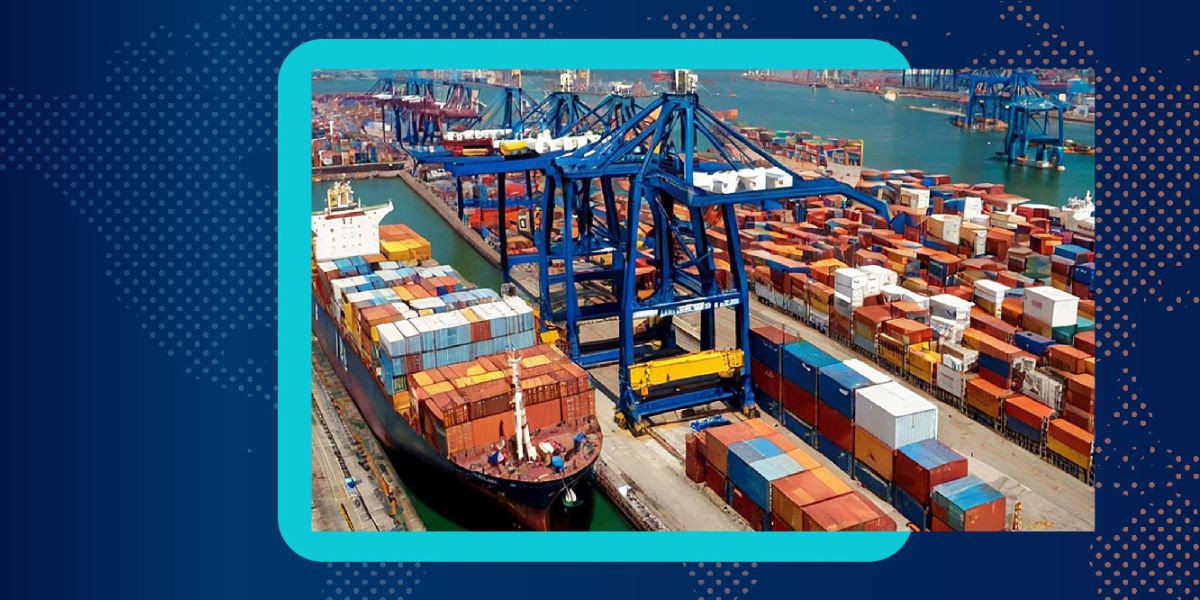Global trade has never been more accessible—yet never more complex. Whether a business is importing medical devices into Europe, moving automotive components across borders, or shipping electronics from China to India, the logistics behind these movements require knowledge, strategy, and strict regulatory compliance.
This is where a clear understanding of global shipping, the Importer of Record (IOR) model, and the intricate world of trade compliance becomes essential.
In this article, we’ll break down these concepts in simple, engaging terms while drawing from real-world examples, industry data, and expert insights. As a global logistics partner, One Union Solutions supports companies in navigating these challenges with confidence and efficiency.
1. What Is Global Shipping and Why Is It So Complex?
Global shipping refers to the movement of goods across international borders using air, sea, rail, or road transport. At first glance, it seems straightforward: pack the goods, ship them, receive them.
But the reality is far more layered.
Every shipment passes through multiple checkpoints, including:
Export customs in the country of origin
International freight handling
Import customs in the destination country
Local distribution networks
Warehousing and final delivery
Each checkpoint comes with its own rules, paperwork, charges, and risks.
Why Global Shipping Has Become More Complicated
Increasing trade regulations
Supply chain disruptions (post-pandemic delays, container shortages)
Country-specific import restrictions
Specialized cargo like Medical Equipment Imports and sensitive electronics
Compliance with international standards and safety laws
In fact, according to the World Bank’s Logistics Performance Index, customs delays and regulatory barriers are among the biggest causes of global shipping inefficiencies.
2. The Role of Customs Brokers in Global Trade
Customs brokers are licensed professionals who act as intermediaries between importers and government authorities. Their role is crucial because one mistake in documentation can lead to fines, delays, or even cargo seizure.
What a Customs Broker Does
Files customs documents
Calculates duties and taxes
Ensures compliance with local import laws
Helps classify goods correctly under HS codes
Facilitates smooth entry of goods into the destination country
For companies dealing with unfamiliar markets—such as Europe, India, or the Middle East—brokers are indispensable. They simplify the chaos and keep shipments compliant.
3. Understanding the Importer of Record (IOR)
The Importer of Record is the legal entity responsible for ensuring that imported goods meet all regulatory and compliance requirements of the destination country.
This includes:
Obtaining import licenses
Paying duties and taxes
Ensuring product compliance
Maintaining post-import documentation for audits
Many companies do not have a legal presence in every country they ship to. That’s why they rely on IOR service providers like One Union Solutions.
Why IOR Matters
Avoids legal complications
Ensures seamless global expansion
Supports industries with tight regulations (medical, IT hardware, automotive)
Reduces operational costs by eliminating the need to set up local entities
For instance, medical equipment imports often require certificates of conformity, product approvals, and health authority permits. An IOR handles all of these requirements efficiently.
4. How to Navigate Complex Regulatory Landscapes
One of the biggest challenges in global trade is dealing with varied—and sometimes confusing—regulatory frameworks.
Key areas that require careful navigation
Product certifications (CE, FDA, BIS, etc.)
Dual-use export controls
Trade sanctions
Health and safety compliance
Import licensing
For example, the EXIM Policy of India explains the guidelines for imports/exports, restrictions on prohibited goods, and the documentation required for smooth clearance. Similar frameworks exist in the EU, US, China, and Middle East.
Working with a reliable IOR/EOR partner helps companies avoid penalties and keep shipments moving without bottlenecks.
5. How Long It Takes for Shipping from China
China remains the world’s largest exporter, so transit times are important for businesses.
Typical shipping durations from China
Air freight: 3–7 days
Express shipments: 2–4 days
Sea freight (LCL/FCL): 18–35 days depending on destination
Rail freight to Europe: 12–20 days
Delays may occur due to customs backlogs, port congestion, or peak-season traffic.
Companies shipping electronics, automotive parts, or medical devices often choose air freight combined with IOR to speed up deliveries.
6. White Glove Delivery Service & Dedicated Shipping
Some products require special handling—sensitive lab equipment, high-value electronics, or delicate medical devices.
This is where Dedicated Shipping / White Glove Delivery Services come in.
What White Glove Service Includes
Door-to-door handling
Professional unpacking
Setup/installation support
Real-time tracking
Zero-touch, damage-free delivery
Industries like healthcare and IT depend on such specialized services to ensure the safe, timely handling of critical equipment.
7. Bonded Warehouses & Global Storage Solutions
A Bonded Warehouse is a secure storage facility where imported goods can be stored without paying duties or taxes until they are sold or moved.
Advantages
Improved cash flow
Better inventory control
Duty deferment
Ideal for global trading companies
In Europe, Warehousing Services in the Netherlands are especially popular due to the country’s strategic location, world-class infrastructure, and customs-friendly environment.
8. International Trade and the Automotive Industry
The automotive sector relies heavily on global supply chains—engines from Germany, electronics from Japan, components from China, and assembly in Mexico or India.
Key challenges for automotive imports
High regulatory barriers
Stringent safety standards
High-value shipments requiring secure handling
Time-sensitive production cycles
An IOR service ensures compliance with trade laws so automotive companies can maintain uninterrupted production.
9. Understanding Trade Compliance & Its Significance in Global Trade
Trade compliance includes all laws and regulations governing how goods move across borders.
Why It Matters
Protects companies from fines and audits
Prevents shipment delays
Builds trust with customs authorities
Ensures smooth global expansion
Non-compliance can lead to penalties running into millions of dollars—something no business can afford.
Conclusion: A Smarter Way to Manage Global Shipping
As global trade continues to evolve, businesses must stay ahead of the complexities involved—from customs regulations and country-specific compliance to shipping timelines and specialized handling.
Understanding Global Shipping and IOR is not just beneficial—it is essential for any company looking to expand internationally.
One Union Solutions helps businesses simplify logistics with:
Customs brokerage support
Bonded warehousing
End-to-end regulatory compliance
Global freight and distribution
By combining expertise with seamless execution, One Union Solutions ensures that your supply chain remains resilient, compliant, and efficient—no matter where in the world you do business.







